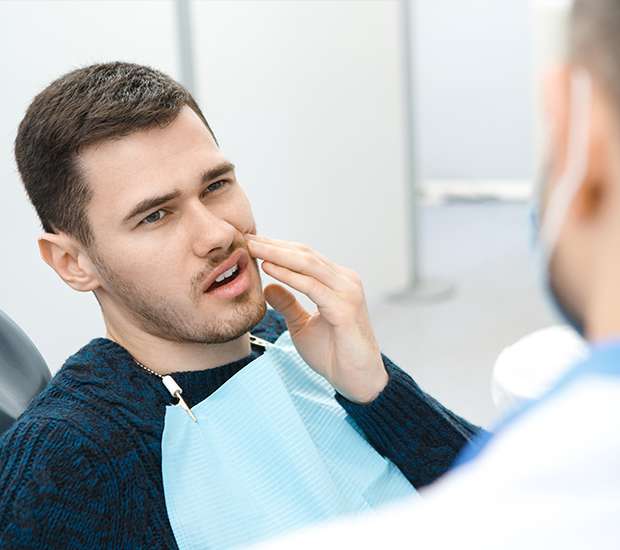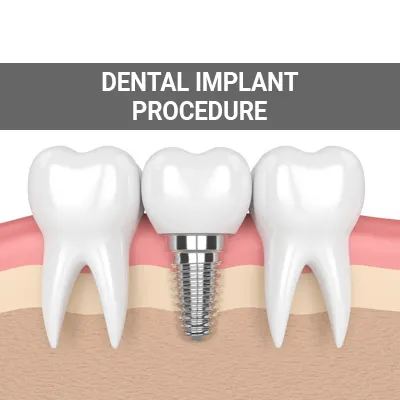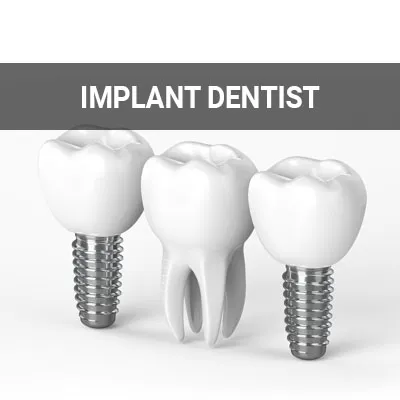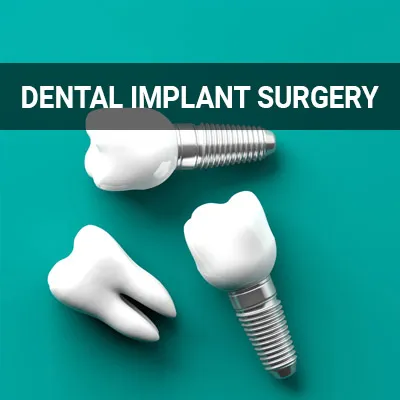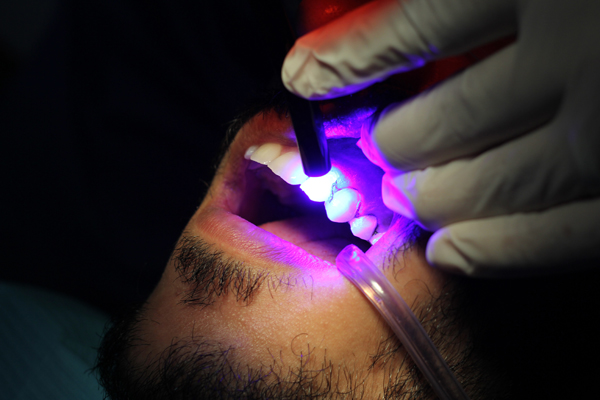Post-Op Care for Dental Implants Charleston, SC
Dental implant placement is a surgical procedure done to replace missing teeth. Post-operative care is necessary to ensure proper and seamless healing and recovery. A dentist can provide you with the necessary instructions to prevent complications and alleviate symptoms often associated with the procedure.
Post-op care instructions are provided by Hudgens Dental in Charleston and the surrounding area. Every patient is unique, so some of the instructions below may not apply to your unique situation. If you need further clarification, call our office today at (843) 556-7437.
An Overview or Post-Op Care for Dental Implants
The length of recovery time for dental implants will vary per patient. In most cases, it will not take nearly as long as people assume. With good oral hygiene and specific dietary restrictions, patients can count on an efficient and comfortable recovery. Our team can suggest soft foods patients can eat to lessen the chance of irritation in the area surrounding the implant. Patients should ask about oral health techniques to apply to avoid inflaming the site as well.
We can help explain the initial and long-term recovery process, so most patients know what to expect following implant placement. Although every patient has a different experience, there are certain side effects to expect and precautions to take during post-operative care. According to Medical News Today, infection, gum recession, and a loose implant are more common problems that can develop after dental implant surgery. Patients should inform our team of any medications they are taking or chronic conditions that might affect recovery.
“With good oral hygiene and specific dietary restrictions, patients can count on an efficient and comfortable recovery.”
The Recovery Process
The recovery process happens in stages, and many can make a full recovery in as little as four weeks. The patient may need to take several days off from work and physical activity during post-operative care, while the swelling and discomfort are at their worst. Most return to eating normally within two weeks, which is about the same time swelling, bleeding, and overall discomfort should start to go away.
There is little discomfort associated with dental implants, but the side effects may vary slightly for each patient. However, there are certain side effects patients can expect during post-operative care. Several of the more prominent and notable side effects include:
- Pain and swelling: The dentist will provide ways to minimize discomfort, but there will be some pain and gum swelling for the first few weeks of post-op care.
- Minor bleeding: While it is possible to keep bleeding at a tolerable level by avoiding irritation of the implant site, some occasional minor bleeding may occur.
- Difficulty chewing: Dietary restrictions (see below) are necessary for the first few post-op care weeks.
- Restricted movement: Swelling and discomfort often restrict jaw movement during the recovery process.
Most side effects are minor and go away within the first few weeks of post-op care. Talk to your dentist if more severe side effects develop.
“The recovery process happens in stages, and many can make a full recovery in as little as four weeks.”
Post Operative Follow Up Appointments
All patients will require one or more follow-up appointments after the day of surgery, though the number of appointments and type of recommended aftercare will vary depending on each individual's treatment plan. In any case, it is vitally important to attend all of these appointments and follow the dentist's instructions.
Dental implants require regular checkups to ensure the procedure has been successful. The dentist must first check that the implant has attached to the jawbone properly, without any signs of inflammation or infection. Additionally, gum disease is correlated with implant failure, among other problems. A dentist can help catch these issues before they become serious.
“…it is vitally important to attend all of these appointments and follow the dentist’s instructions.”
Check out what others are saying about our dental services on Yelp: Post-Op Care for Dental Implants in Charleston, SC
How to Make a Quick Recovery and Return to a Regular Routine
If patients are looking to speed up the recovery process, there are some things not to do. Do not drink through a straw as the suction could irritate the wound and slow recovery. Smoking can slow healing by depriving your body of vital oxygen needed for recovery. Other vices to avoid include caffeine and alcohol. Drink water instead because staying hydrated will speed recovery.
Besides practicing good oral hygiene, there are a few things one can do to aid in recovery. Patients can use ice packs to help reduce swelling. By day two and after, saltwater rinses will help keep bacteria away.
“Besides practicing good oral hygiene, there are a few things one can do to aid in recovery.”
Questions Answered on This Page
Q. What questions should a patient ask about the post-op process?
Q. What will post-surgery side effects can patients expect?
Q. Is there anything patients can do to recover faster?
Q. How many post-op follow-up appointments will I need?
Q. What dietary and lifestyle changes do I need to make after my dental implant procedure?
People Also Ask
Q. What are the benefits of dental implants?
Q. How can I prepare for my first implant procedure?
Q. What do I do if my implant feels loose?
Q. Do missing or crowded teeth affect dental implant candidacy?
Dietary and Lifestyle Changes
After the dental implant procedure, one's diet should consist primarily of nutritious food that can be eaten painlessly. Avoid eating extremely hot foods and avoid straws for a few days following the procedure. In the first few days, it is preferable (though not compulsory) to stick to liquids or pureed foods, such as puddings, soups, yogurts, and milkshakes.
Similarly, it is best to shun foods that may get stuck around the implant area, such as sunflower seeds, rice, nuts, and popcorn. However, patients can gradually return to solid foods as healing progresses. While eating may be uncomfortable, it is important to not skip meals, as nourishment is crucial for strength and recovery. Diabetic patients can maintain their meal routines or ask the doctor for instructions.
It is also vital to start proper oral hygiene as soon as possible after the procedure. Due to the swelling and soreness, it may be challenging to brush vigorously, meaning patients may need to brush within the acceptable limits of comfort. Ideally, however, patients should brush the night after the procedure, being careful around the treatment site.
If there is any minor bleeding or oozing, patients should start cleaning their mouth with saltwater rinses 24 hours after the procedure. Mildly swish the saltwater around in the mouth and let it drip into the sink. Repeat this twice or thrice daily, usually after eating. Keeping the area around the implant site clean is important for optimal and quick healing.
“After the dental implant procedure, one’s diet should consist primarily of nutritious food that can be eaten painlessly.”
Frequently Asked Questions
Q. When will it be safe for me to return to work after my dental implant procedure?
A. You can expect any swelling and soreness to last for three to five days; therefore, it is advisable to undergo surgery towards the week's end, so you can take a work break to recover. Generally, if you had the procedure on a Thursday, you can expect to return to work by Tuesday.
Q. Is there anything that can hinder the post-op recovery process?
A. Patients with uncontrolled diabetes may have complications with recovery. Patients who smoke may also be at increased risk of infection and hindered healing. Talk to your dentist about any preexisting conditions that may affect recovery.
Q. What is post-operative care like after getting the final tooth?
A. The invasive part of the procedure occurs during implant placement. Once the jaw heals around the implant, attaching the final tooth is a lot easier. Aside from some minor gum sensitivity, which can be managed with ibuprofen, there is no significant recovery process.
Q. How can I avoid infection after my dental implants procedure?
A. Keep your mouth clean whenever possible, beginning the day after surgery. Brush with a soft-bristled toothbrush and fluoridated toothpaste after meals and before bedtime. Stop any bleeding by applying gauze to the treatment area. Finally, do not rinse your mouth directly after surgery.
Dental Implant Terminology
Call Us Today
We enjoy helping our dental implant patients through every treatment stage, from the initial consultation to post-operative care. Call us at 843-556-7437 today to schedule a visit with us and learn more about the treatment and post-operative care process for dental implants.
Helpful Related Links
- American Dental Association (ADA). Glossary of Dental Clinical Terms. 2025
- American Academy of Cosmetic Dentistry® (AACD). Home Page. 2025
- WebMD. WebMD’s Oral Care Guide. 2025
About our business and website security
- Hudgens Dental was established in 1996.
- We accept the following payment methods: American Express, Cash, Check, Discover, MasterCard, and Visa
- We serve patients from the following counties: Charleston County
- We serve patients from the following cities: Charleston, Mount Pleasant, James Island, Ravenel, Meggett, North Charleston, Daniel Island, and West Ashley
- Healthgrades. View Background Information and Reviews
- Norton Safe Web. View Details
- Trend Micro Site Safety Center. View Details
Back to top of Post-Op Care for Dental Implants
